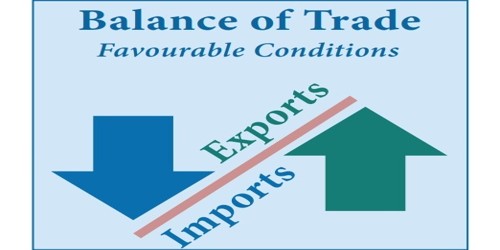
Insurance premiums are a crucial aspect of any insurance policy. They determine the cost of your coverage and can vary depending on several factors.
Understanding insurance premiums and the factors that influence them is essential to make informed decisions about your coverage. In this section, we will provide an overview of insurance premiums and the various factors that affect them.
Key Takeaways
- Insurance premiums play a crucial role in determining the cost of your coverage.
- Factors that impact insurance premiums include the type of insurance, coverage options, personal details, driving history, health, location, and security measures.
- Gaining an understanding of these factors can help you find the right coverage at the best price.
Understanding Insurance Types and Coverage
Insurance is a way to protect yourself financially from unexpected events. There are several types of insurance, each designed to provide coverage for different situations. Let's take a closer look at the most common types of insurance:
Auto Insurance
Auto insurance is designed to provide coverage for damages caused by accidents, theft, or other incidents involving your vehicle. It can also provide liability coverage if you are found to be at fault in an accident and someone else is injured or their property is damaged. Auto insurance coverage can vary depending on the policy and the insurance company, but common types of coverage include:
- Liability
- Collision
- Comprehensive
- Uninsured/Underinsured Motorist
Health Insurance
Health insurance is designed to provide coverage for medical expenses related to illness or injury. It can help pay for doctor visits, hospital stays, prescription medications, and other medical services. Health insurance coverage can vary depending on the policy and the insurance company, but common types of coverage include:
- Medical
- Dental
- Vision
- Prescription Drugs
Life Insurance
Life insurance is designed to provide financial support to your loved ones in the event of your death. It can help cover expenses such as funeral costs, outstanding debts, and living expenses. Life insurance coverage can vary depending on the policy and the insurance company, but common types of coverage include:
- Term Life Insurance
- Whole Life Insurance
- Universal Life Insurance
Home Insurance
Home insurance is designed to provide coverage for damages to your home and personal belongings caused by weather, accidents, or other incidents. It can also provide liability coverage if someone is injured on your property. Home insurance coverage can vary depending on the policy and the insurance company, but common types of coverage include:
- Dwelling Coverage
- Personal Property Coverage
- Liability Coverage
Renters Insurance
Renters insurance is designed to provide coverage for damages to your personal belongings caused by theft, fire, or other incidents. It can also provide liability coverage if someone is injured while visiting your rented space. Renters insurance coverage can vary depending on the policy and the insurance company, but common types of coverage include:
- Personal Property Coverage
- Liability Coverage
- Additional Living Expenses
Travel Insurance
Travel insurance is designed to provide coverage for unexpected events that may occur while traveling, such as trip cancellation, emergency medical expenses, or lost luggage. Travel insurance coverage can vary depending on the policy and the insurance company, but common types of coverage include:
- Trip Cancellation
- Emergency Medical
- Baggage Loss
"Having a good understanding of the different types of insurance and the coverage they provide is essential when selecting the right policy for your needs."
Factors Affecting Auto Insurance Premiums

Auto insurance premiums can vary significantly from one individual to another, depending on various factors. These factors determine the level of risk that an insurance company is undertaking by covering a particular driver, which, in turn, affects the cost of the coverage premium. Below, we will explore some of the key factors that influence auto insurance premiums.
Driving Record and History
One of the most important factors that affect auto insurance premiums is the driving record and history of the individual. Insurance companies look at the number of accidents, traffic violations, and insurance claims that a driver has on their record. A clean driving record without any accidents or violations can significantly reduce the cost of auto insurance premiums.
Type of Vehicle
The type of vehicle you own can also affect your auto insurance premiums. Some vehicles, such as sports cars, have higher insurance premiums because they are more likely to be involved in accidents or stolen. It is best to check with your insurance company before purchasing a vehicle to get an estimate of the insurance premiums.
Age and Gender
Age and gender of the driver are also essential factors that affect auto insurance premiums. Young drivers under the age of 25 are more likely to get into accidents than older, more experienced drivers. Men typically have higher insurance premiums than women as they are statistically more likely to engage in risky driving behavior.
Credit Score
Many insurance companies also look at the credit score of the driver when determining auto insurance premiums. A higher credit score indicates that the individual is financially responsible, which can result in a lower premium. However, it is essential to note that several states prohibit insurance companies from using credit scores to determine premiums.
Location and Usage
The location where you live and how you use your car affects the auto insurance premiums you pay. If you live in a high-traffic urban area with a higher risk of accidents and theft, you will likely pay higher premiums. Additionally, if you use your car for business purposes, your insurance premiums will be higher than if you use your car for personal use only.
Conclusion
The factors mentioned above are just a few of the many that can affect auto insurance premiums. Insurance companies use a complex system to determine premiums, taking into account a wide range of personal details and statistical data to assess risk and set premiums accordingly. Working with a reliable insurance company and agent can help you find the right policy at the best possible price.
Decoding Health Insurance Premiums
Health insurance premiums can vary greatly depending on a variety of factors. Below are the key factors that you need to consider when evaluating health insurance premiums.
Age
Age is one of the most significant factors that affect health insurance premiums. The older you are, the more likely it is that you will experience health problems that require medical attention. This increases the cost of insurance premiums as you are considered a higher risk for insurance companies.
Pre-existing Conditions
If you have any pre-existing conditions, such as diabetes or heart disease, your insurance premiums may be higher. Insurance companies consider these conditions to be a higher risk, and therefore charge higher premiums to cover them.
Coverage Options
The more coverage you have, the higher your health insurance premiums will be. When choosing a health insurance plan, it is important to consider your specific needs and select a plan that provides the necessary coverage while also being affordable.
Insurance Company
The insurance company you choose can also impact your health insurance premiums. Some insurance companies may charge higher premiums than others, while some may provide discounts for certain factors such as healthy lifestyles or group coverage.
Tip: Be sure to shop around and compare premiums from different insurance companies to find the best deal.
By understanding these factors, you can make informed decisions when selecting health insurance coverage and ensure that you are getting the coverage you need at a price you can afford.
Understanding Life Insurance Premiums

Life insurance is an essential investment for people who want to secure their family’s financial future. It provides a lump-sum payment to the beneficiaries in case of the policyholder’s unexpected death. However, the premiums for life insurance policies vary depending on various factors. Here are some key factors that impact your life insurance premiums:
| Factor | Explanation |
|---|---|
| Age | The younger you are, the lower the premiums will be. This is because younger people are considered to be at a lower risk of death. |
| Health | Your health plays a significant role in determining your life insurance premiums. If you have pre-existing medical conditions, you may have to pay higher premiums. A medical exam may be required before you sign up for a policy. |
| Lifestyle Choices | Smoking, drinking, and other unhealthy lifestyle choices can increase your life insurance premiums. Insurance companies consider these habits as risk factors. |
| Occupation | If your job involves high-risk activities, such as mining or construction work, you may have to pay higher premiums. This is because some occupations are considered riskier than others. |
| Coverage Amount | The higher the coverage amount, the higher the premiums will be. It’s essential to choose a coverage amount that will be sufficient for your family’s needs without being too expensive. |
It’s important to shop around and compare multiple life insurance policies before choosing one. Different insurance companies have different underwriting criteria and pricing models. Working with an independent insurance agent can help you find the right policy at an affordable price.
Factors Influencing Home Insurance Premiums
When it comes to home insurance, the amount you pay in premiums can vary widely depending on a variety of factors. Here are some of the key considerations that insurance companies take into account when determining your home insurance costs:
| Factor | Description |
|---|---|
| Location | The location of your home can have a big impact on your insurance premiums. Homes that are located in areas with higher crime rates or natural disaster risks are more expensive to insure. |
| Age of Property | The age of your home can also affect your insurance costs. Older properties may have outdated electrical or plumbing systems, which can pose a higher risk for insurers. |
| Security Measures | Homes that have certain security features such as an alarm system or monitored cameras may be eligible for lower insurance rates. |
| Policy Coverage Limits | The amount of coverage you choose can impact your premiums. A higher coverage limit means higher premiums, but also greater protection. |
| Insurance Company | The insurance company you choose can also play a role in determining your home insurance premiums. Different insurers may offer different rates and discounts. |
As you can see, many factors go into determining your home insurance premiums. To get the best possible rates, it's important to compare quotes from different insurers and make sure you are choosing the coverage that best fits your needs.
Renters Insurance and Its Cost Factors

Renters insurance is a type of insurance that protects renters from losses due to damage or theft of their personal belongings. It's a wise investment for those who rent their homes as it can provide peace of mind in the event of an unforeseen event. However, the cost of renters insurance can vary depending on several factors.
Type of Coverage
The type of coverage you choose can influence the cost of your renters insurance. Actual Cash Value (ACV) policies have lower premiums, but only pay out the depreciated value of your belongings. On the other hand, Replacement Cost Value (RCV) policies have higher premiums but pay out the full cost of replacing your belongings at current market prices.
Location of Your Rental Property
The location of your rental property is another factor that can influence the cost of your renters insurance. If you live in an area that is prone to theft or natural disasters, such as floods or earthquakes, you may be charged higher premiums. Conversely, if you live in a safe and secure neighborhood, your insurance company may offer you a discount.
| Location Factor | Impact on Premiums |
|---|---|
| High crime rate | Increase in premiums |
| Close proximity to water bodies | Increase in premiums |
| Safe and secure neighborhood | Discount on premiums |
Personal Belongings
The value of your personal belongings is another factor that can affect your renters insurance premiums. If you have expensive items, such as jewelry or electronics, you may need more coverage, which can lead to higher premiums. It's essential to take an inventory of your belongings and determine how much coverage you need to ensure that you're adequately protected without overpaying for insurance.
Deductible Amount
The deductible amount is the amount you agree to pay out of pocket before your insurance kicks in. If you choose a higher deductible, your premiums will be lower, but you will have to pay more out of pocket if you file a claim. Conversely, a lower deductible will result in higher premiums, but you will pay less out of pocket if you file a claim.
Insurance Company
The insurance company you choose can also play a role in the cost of your renters insurance. Different insurance companies have different underwriting standards and pricing models, which can lead to significant variations in premiums. It's essential to do your research and compare quotes from several insurance companies to find the best coverage at the most affordable price.
Conclusion
In conclusion, renters insurance premiums can be affected by several factors, including the type of coverage, location of your rental property, value of your personal belongings, deductible amount, and insurance company. By understanding these factors, you can make an informed decision when selecting a renters insurance policy that meets your specific needs and budget.
Travel Insurance Premiums: What to Consider
When planning a trip, obtaining travel insurance is an essential component of a stress-free vacation. However, selecting the right travel insurance policy can be a daunting task. Several factors can influence the cost of travel insurance premiums
Trip Duration
The length of your trip is a crucial factor that can impact the cost of your travel insurance premiums. The longer your trip, the higher the premiums you are likely to pay.
Destination
The destination you are traveling to can also influence the cost of travel insurance. Some countries present more significant risks than others, which can increase the cost of your policy.
Coverage Options
The coverage options you choose for your travel insurance policy can also affect the cost of your premiums. For instance, if you choose to include high-risk activities such as skiing or bungee jumping, your premiums will be higher. Additionally, if you opt for more comprehensive coverage, you'll pay more in premiums.
Insurance Company
The insurance company you choose to purchase your travel insurance policy from can impact the cost of your premiums. It's essential to shop around and compare quotes from various insurance companies to ensure you find the best deal on your travel insurance.
By considering these factors when purchasing travel insurance, you'll be better equipped to find a policy that suits your needs and budget.
Conclusion
As we wrap up our discussion on insurance premiums, it's important to remember that the cost of your insurance coverage is dependent on numerous factors. Insurance companies consider aspects such as your personal details, vehicle or property type, coverage needs, and more when determining your premiums.
It's crucial to do your research and shop around for the best insurance company and agent to meet your needs. Understanding the factors that influence your insurance premiums can help you make informed decisions and find affordable coverage.
Working with an Insurance Agent
One way to ensure you are getting the best insurance coverage at a reasonable price is to work with an experienced insurance agent. An agent can help you navigate the insurance market, answer your questions, and provide guidance on selecting the right coverage options.
When selecting an agent, make sure they are licensed and reputable. Additionally, be upfront about your coverage needs and budget to ensure they can provide tailored recommendations.
Remember, insurance is an investment in your financial security. By understanding the factors that impact insurance premiums and working with a knowledgeable agent, you can find the right coverage at the best price.
Thank you for reading and best of luck in your insurance journey!
FAQ
What factors influence insurance premiums?
Insurance premiums are influenced by various factors such as your age, driving history, location, coverage amount, and the type of insurance policy you choose.
How can I lower my auto insurance premiums?
There are several ways to lower your auto insurance premiums. You can consider increasing your deductible, maintaining a good driving record, bundling your policies, and asking for discounts from your insurance company.
What should I consider when purchasing health insurance?
When purchasing health insurance, it's important to consider factors such as your age, pre-existing conditions, coverage options, network of doctors, and the premium costs associated with different plans.
What factors affect the cost of life insurance?
The cost of life insurance is influenced by factors such as your age, health condition, coverage amount, and the type of policy you choose. Additionally, factors like smoking habits and lifestyle choices may also impact the premium.
How can I reduce my home insurance premiums?
To reduce your home insurance premiums, you can consider installing security systems, smoke detectors, and fire alarms. Additionally, maintaining a good claims history, increasing your deductible, and bundling your home and auto policies can also help lower the premiums.
What factors determine renters insurance premiums?
Renters insurance premiums are determined by factors such as the coverage limits you choose, the location of your rental property, the value of your personal belongings, and any additional coverage options you select.
How are travel insurance premiums calculated?
Travel insurance premiums are calculated based on factors such as the duration of your trip, your age, the destination you're traveling to, the coverage options you choose, and any pre-existing medical conditions you may have.








